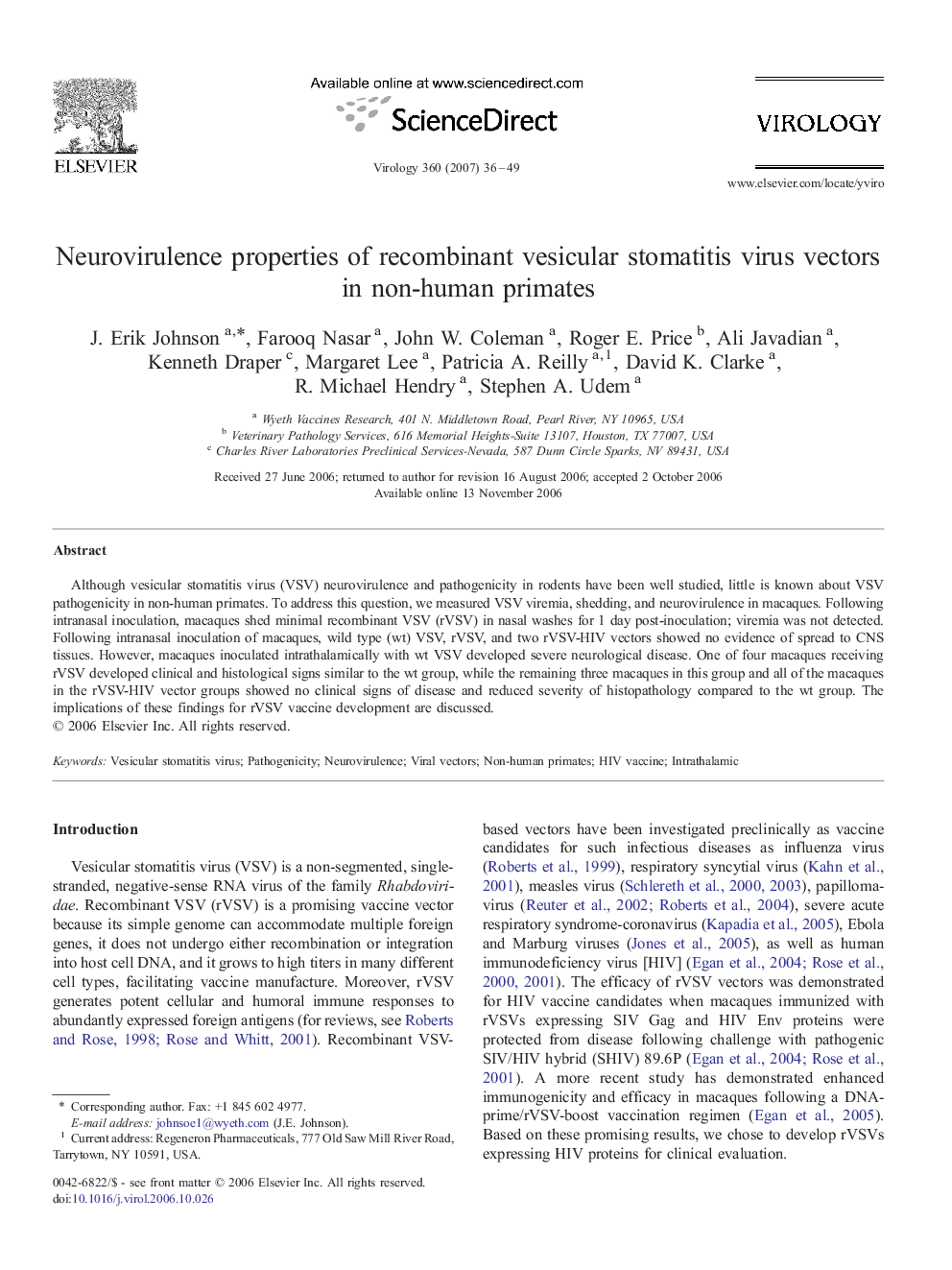| Article ID | Journal | Published Year | Pages | File Type |
|---|---|---|---|---|
| 6141821 | Virology | 2007 | 14 Pages |
Abstract
Although vesicular stomatitis virus (VSV) neurovirulence and pathogenicity in rodents have been well studied, little is known about VSV pathogenicity in non-human primates. To address this question, we measured VSV viremia, shedding, and neurovirulence in macaques. Following intranasal inoculation, macaques shed minimal recombinant VSV (rVSV) in nasal washes for 1Â day post-inoculation; viremia was not detected. Following intranasal inoculation of macaques, wild type (wt) VSV, rVSV, and two rVSV-HIV vectors showed no evidence of spread to CNS tissues. However, macaques inoculated intrathalamically with wt VSV developed severe neurological disease. One of four macaques receiving rVSV developed clinical and histological signs similar to the wt group, while the remaining three macaques in this group and all of the macaques in the rVSV-HIV vector groups showed no clinical signs of disease and reduced severity of histopathology compared to the wt group. The implications of these findings for rVSV vaccine development are discussed.
Keywords
Related Topics
Life Sciences
Immunology and Microbiology
Virology
Authors
J. Erik Johnson, Farooq Nasar, John W. Coleman, Roger E. Price, Ali Javadian, Kenneth Draper, Margaret Lee, Patricia A. Reilly, David K. Clarke, R. Michael Hendry, Stephen A. Udem,
